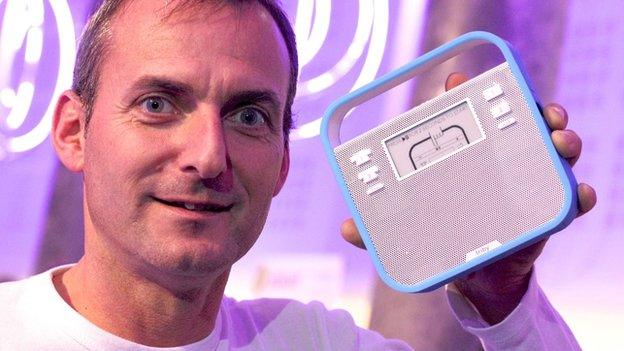Microsoft teases Amazon Echo rival
- Published
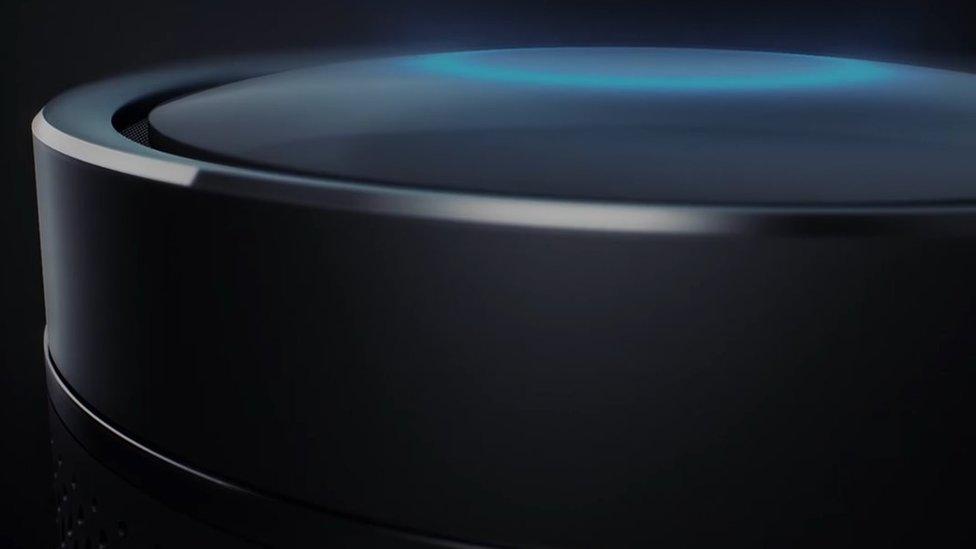
A video shows the Cortana speaker being asked to play music and set a reminder
Microsoft has revealed details of the first voice-controlled speaker to be powered by its smart assistant Cortana.
A video shows a cylindrical product, external with a blue pulsating light, made by the audio specialist Harman Kardon.
The device resembles Amazon's rival Echo. It will also face competition from Google's Home speaker.
The video comes a week after Microsoft said, external it planned to bring Cortana to other smart home kit including thermostats, fridges and toasters.
However, the tie-up with Harman Kardon might be short-lived because the firm's parent company is in the process of being taken over by Samsung, which is working on a smart assistant of its own.
WATCH: Rory Cellan-Jones tests the British-accented Echo and asks how well it handles privacy
Cortana was originally developed for Windows smartphones before making its way to PCs.
But the decision to place it in a device that does not feature a screen may have come about only because of a gamble Amazon took two years ago.
When the shopping giant released the original Amazon Echo in November 2014, it was criticised for being an "unpolished novelty", external that was likely to lack mainstream appeal.
But many other internet-based services added support for the device's Alexa platform, and although Amazon has not released sales figures, it is recognised as being a success.
"Smart speakers have been one of the surprises of the past couple of years, and it feels like we have reached a tipping point for natural-language interfaces," said Ben Wood from the tech consultancy CCS Insight.
"Previously, smart assistants on smartphones did not live up to expectations and had been a poor user experience, which most people abandoned.
"But Amazon proved that with the cloud and artificial intelligence assets it had, it could deliver a service people could see a real benefit from."
Dave Lee tries out Home with Google's Michael Sundermeyer
Amazon has since brought Alexa to several third-party products and Google has voiced its intention to do likewise with the assistant that controls the Home.
Many industry watchers are expecting next month's CES tech expo in Las Vegas to provide an indication of how well the two companies are faring at securing such tie-ups. Microsoft's entry into the market will intensify the competition.
The video indicates it aims to promote the new device as a "premium audio" option.
Microsoft is also likely to build on October's claim that its speech-recognition tech, external is now as good at recognising the words in conversational speech as a human.
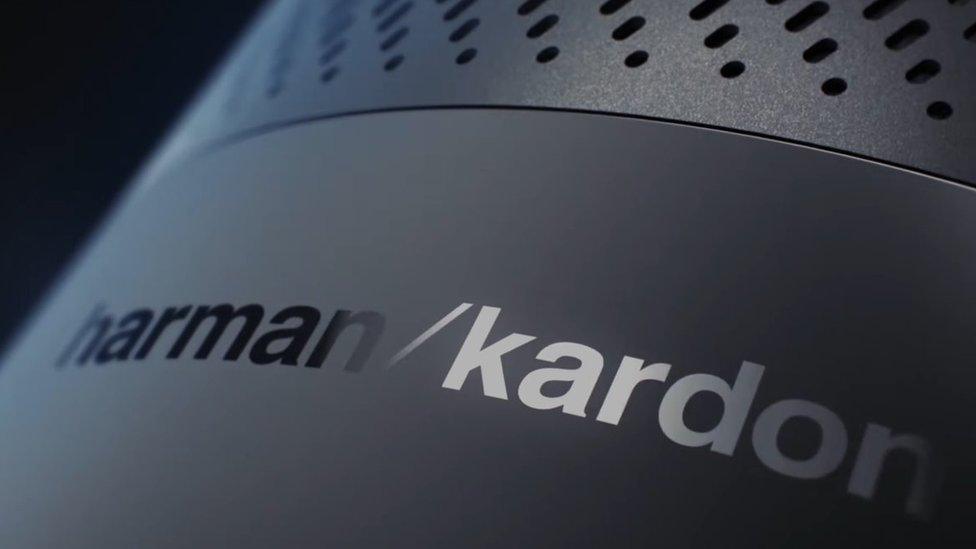
Microsoft hopes to take advantage of Harman Kardon's reputation for quality audio products
"There will now be a battle of the big guns in the speech interface space," said Mr Wood.
"Amazon got the jump on everyone else but Google is highly motivated to get its software everywhere, and Microsoft has also put a stake in the ground.
"We'll now have to see what Apple does, because we're not ruling out it trying to offer Siri more broadly because it needs the scale that that offers."
- Published4 October 2016
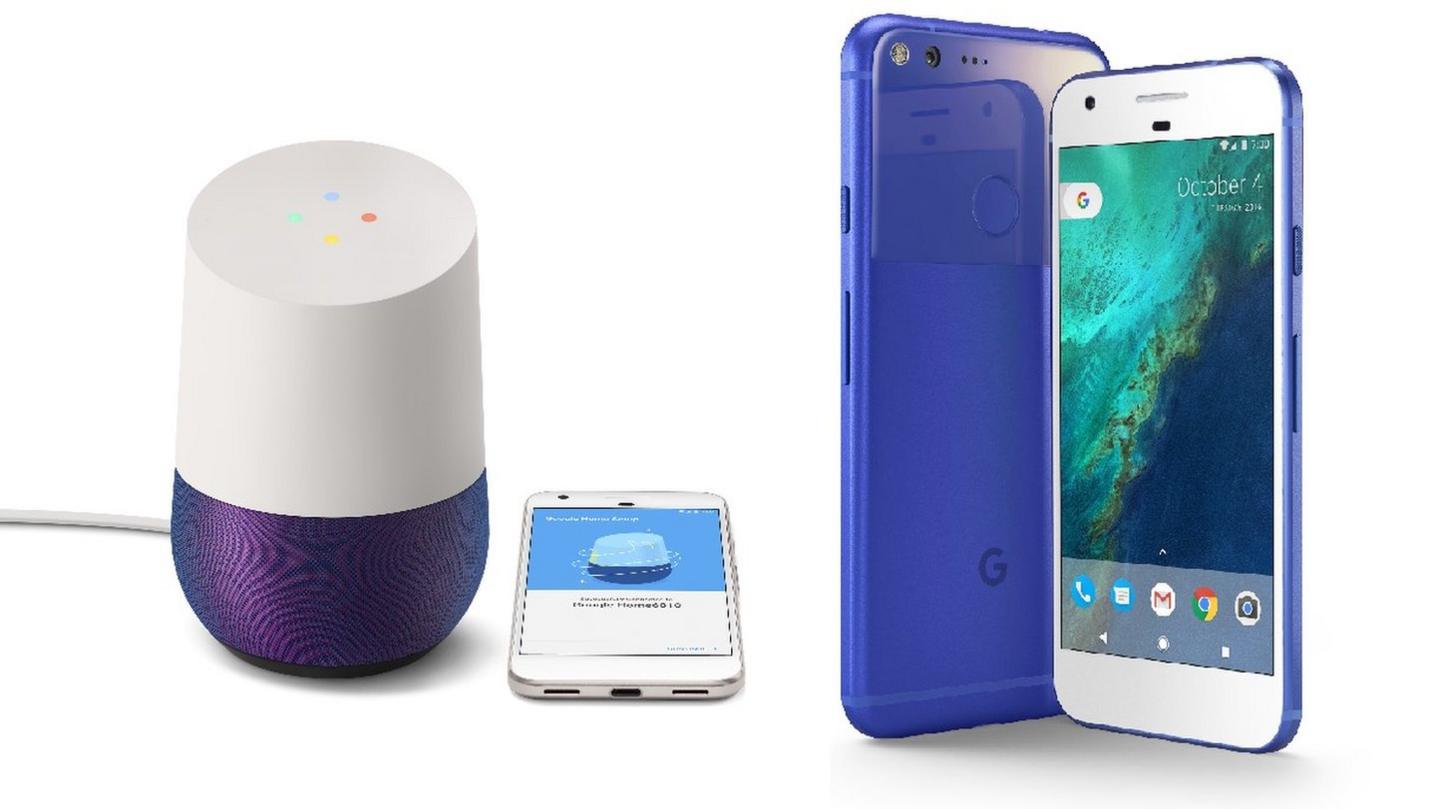
- Published14 September 2016
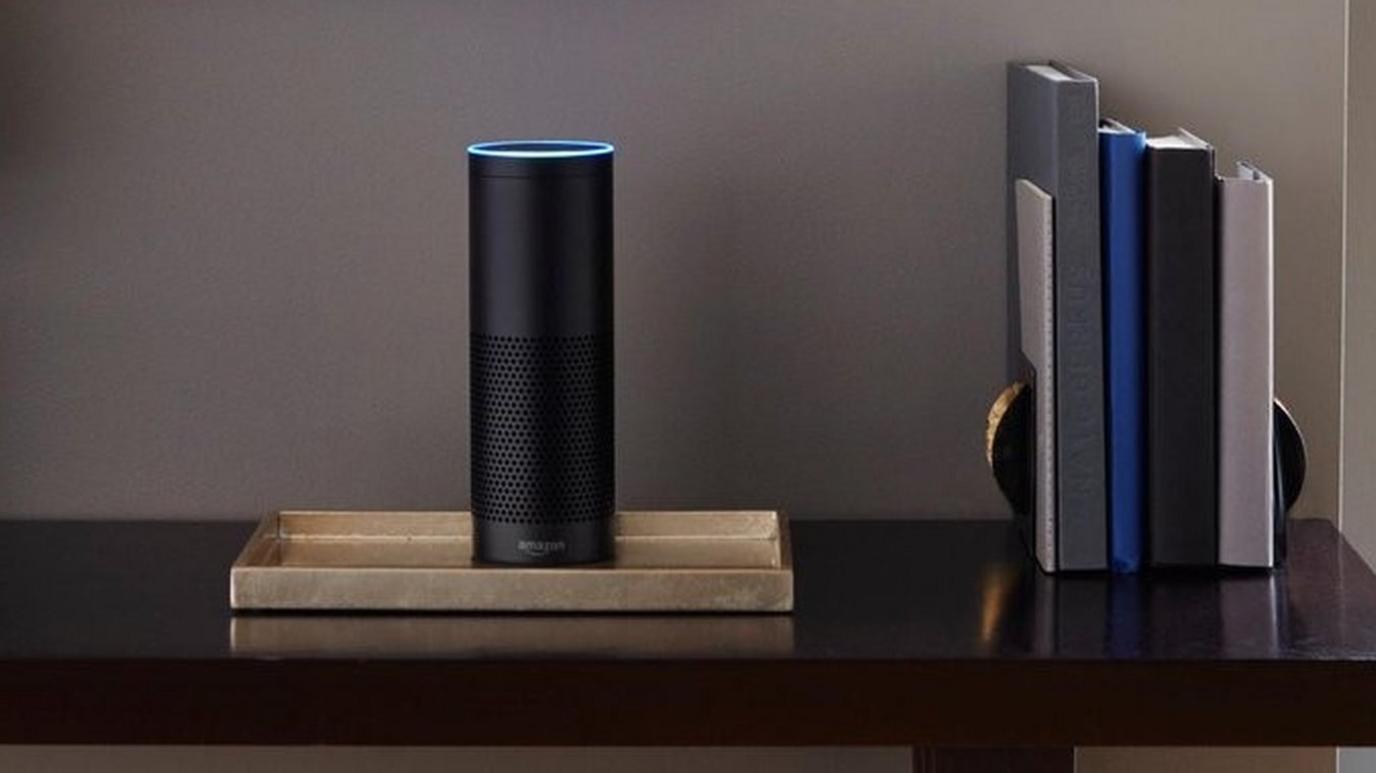
- Published2 January 2016
